Manasseh's Folder
MANASSEH’S SPEECH AT UDS: Ethics, Corruption and Sustainable Dev’t
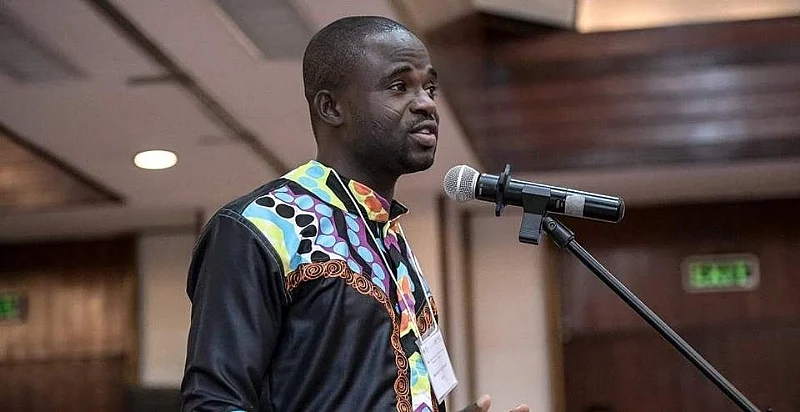
“ETHICS, CORRUPTION AND SUSTAINABLE DEVELOPMENT,” A SPEECH DELIVERED BY MANASSEH AZURE AWUNI ON AUGUST 30, 2022 AT THE UNIVERSITY FOR DEVELOPMENT STUDIES, TAMALE
The Vice-Chancellor of UDS, Professor Gabriel Teye
The Registrar, Mr Nurudeen Issah Abubakar
Heads of Department and lecturers of the UDS
Fellow speakers,
Students and fellow young people of Ghana
Ladies and Gentlemen.
Let me thank the VC and management of the UDS for the honour of inviting me to be part of what I consider the most important dialogue in Ghana today. I also want to congratulate the great minds who conceived the idea to make ethics central to the impact you have made and continue to make in the development of this nation.
The introduction of ethics as a course may turn out to be the biggest achievement of the UDS and your greatest contribution to the development of Ghana. Why do I say so? Ethical conduct is the rarest virtue in Ghana today.
In Hosea 4:6, the Holy Bible teaches us that, “For lack of knowledge, my people perish.” In Ghana today, we are not perishing because we lack knowledge. Our economy is not perishing because we lack the capable hands and the sharp brains to manage it. It is perishing because we have, as leaders, men and women whose instinct is to obey their greed, instead of the national creed.
Our hospitals, especially the public ones, are not graveyards because we lack the right nurses, doctors and medical professionals to run them. People are dying preventable deaths in droves because corruption has robbed those facilities of the much-needed facilities, drugs and tools to save lives.
Hundreds of thousands of young men and women who graduate from our universities and other tertiary institutions each year are more hopeful of Arsenal winning the UEFA Champions League than getting jobs. This is not because Ghana does not have the men and women who can create jobs.
We have the men. And, of course, the women. But we also have greed. We have those who would rather steal from the masses, buy mansions in London or Florida, get their pregnant wives to go and deliver in the US or Canada so that their children will get the citizenship of those countries and be insulated from the mess they’re creating for us.
We have the men and women who know that helping foreigners to destroy our forests, water bodies and lands in the name of illegal mining is detrimental to our country. We have men and women who know the problems with our health sector and how to address them. We have men and women of great learning. We have the men and women who possess the knowledge to harness our abundant human and natural resources and make life dignifying for the average Ghanaian.
What we lack is the critical mass of men and women of conscience. What we lack are the people who ascend public and private offices of responsibility and think beyond their bank accounts. What we lack are leaders such as Dr. Kwame Nkrumah and John Evans Atta Mills, leaders whose people can vouch that they did not have the appetite for the nation’s wealth. Even if they did, they were disciplined enough to tame that appetite.
Ladies, and gentlemen, what Ghana lacks and therefore needs most today, is ethical leadership.
The government of Canada, which established the Office of Public Service Values and Ethics in 1999, defines ethics as “a branch of philosophy that is concerned with human conduct, more specifically the behaviour of individuals in society. Ethics examines the rational justification for our moral judgments; it studies what is morally right or wrong, just or unjust.”
Ethics, I have read elsewhere, is derived from the Greek word “ethos”, which means “way of living”.
One of the primary school definitions that will stick with most of us for the rest of our lives is the definition of culture. Culture, we were told, is the way a group of people live. So if ethics is a way of living and culture is a way a group of people live, then it is fair to say that our lives ought to be ethical, especially when one considers the rich values that are associated with our cultures and traditions. They all frown on unethical conduct such as greed, stealing, selfishness and a host of other vices that ruin our individual and collective lives as a people.
It is befitting that the UDS is championing ethics as a course of study because it reflects what used to be the most cherished trait of the part of the country in which the university is situated. I asked one of the officials of this university whether they noticed that all the speakers for today’s event are from only one region in Ghana and how that happened. His response was that they chose the people they felt deserved to speak on the subject of ethics and then they realised later that they were all from the same region.
In the anti-corruption crusade in Ghana in recent times, a good number of the names that dominate the space are from the north here. The late Daniel Batidam, who was one time the Executive Director of the Ghana Integrity Initiative, was from the north here. Vitus Azeem, another former head of the Ghana Integrity Initiative and a staunch anti-corruption campaigner, is also from the. North here. The Martin Amidus, Anas Aremeyaw Anases, the Manasseh’s and my fellow speakers, Samson Lardy Anyenini and Mary Addah are from the north here. Go to the Ghana Police Service and many still remember the late DCOP Angwubutoge Awuni as one of the most principled police officers in living memory. Many policemen and policewomen will tell you that IGP Peter Nanfuri is the benchmark for measuring the competence and character of inspector generals of the Ghana Police Service.
This may not be just a positive coincidence. A few years ago, I learned that the term Mpepefuo, which I thought was a derogatory term for people of the north, actually meant something different. I learned that the term came from the Twi word “pεpεεpε fuo” loosely translated to mean “right and just people.”
Unfortunately, however, the reality today does not support what used to be the strongest selling point for people from the north. The DCEs, MPS and ministers from the north are not any better or different from those in other parts of the country. Some are worse. And I can say I did not see the semblance of the pεpεεpε fuo trait in the administration of President John Mahama, who hails from the north.
Ladies and Gentlemen, the saddest part of the narrative is that people generally see nothing wrong with the degeneration of the cherished values of the nation. Those of us who try to hold the torch of accountability and transparency are seen as the problem.
I have been accused many times of using my journalism to bring down prominent northerners, my own brothers, they say. My response to those who deserve to hear it is always the same.
My journalism does not discriminate between Northerners and Southerners. I am a Ghanaian. And if there are any leaders who should be held to stricter accountability, then it should be those who represent the poorest people in the country. If persons from the north are put in charge of the Savannah Accelerated Development Authority, which has been renamed Northern Development Authority, they are expected to manage the resources well because they understand the plight of their people better. If they waste the money on fantom projects such as afforestation and guinea fowls, or an inflated NDA contract, which is now been investigated, then we should not blame those holding them to account.
For the past ten years, I have investigated some of the biggest corruption scandals in this country. Some people went to jail for the stories I did. hundreds of millions of cedis were saved because of my investigations. Some public officeholders have lost their jobs. But I daresay the results from these and other investigations by journalists and state actors have not been enough. Many of the culprits, especially those who fund both NDC and NPP and those with powerful political godfathers and traditional rulers often escape the rod of justice.
If you ask me why corruption is rising, I will say it is because there is very little or no punishment for the corrupt in Ghana. The problem however is not only at the top or leadership level. It is pervasive.
The root of the problem is the lack of respect for values and ethics. We are a highly religious people. But we generally do not live godly lives. The concepts of right or wrong are now defined in monetary terms, even if the source of that wealth cannot be traced.
For this reason, a university that intends to integrate ethics into its programmes deserves high commendation. Ashesi University has something called the Honour Code, where students who sign on to it pledge to live ethical lives and hold their peers to account. They write examinations without invigilators and the university says it encourages students to learn ethics from living ethical lives.
I have been told that the UDS intends to make Ethics a course that targets people in positions of trust and influence. In as much as this aim is noble, I will want to suggest that you extend it.
The Dagaaba people eat dogs. But we the Gurune or Frafra keep dogs as pets. When I was growing up, our dogs never walked with us on our way to the farm. The dog would run ahead and wait for you. Sometimes it would allow you to go ahead and it would jog, catch up with you and again run ahead of you. The rich people of East Legon and Trasacco in Accra have learned the ways of the white man in order to make their dogs walk with them. They tie them to chains and ropes. In some parts of the country, a dog that is tied to the rope knows that it is on its way to the Nandom market and will not witness the next sunset.
So why do dogs not walk? An old dog once said he wished he could walk, but it never learned to walk while growing up it was impossible to learn to walk when old. So we need to start from the beginning.
Our elders say the best way to starve a river is to cripple its source. A corrupt and unethical person who occupies a position of responsibility may not change even if they are schooled in ethics. I think this course will be more impactful on the young ones who should grow it. I suggest that you make it an integral part of your curriculum. Ethics should be taught to your medical and nursing students. Ethics should be taught to your communication students. Your Allied Health Sciences students should be taught ethics. Every young person who goes through UDS should be taught the most important and sought-after course in ethics.
I also suggest that the best way to teach ethics in UDS is to demonstrate it in the management of the university. The students should see ethics in how things are done. They should see the UDS as different from other universities.
Teaching ethics will be meaningless if lecturers sleep with students to pass them. Teaching ethics will be meaningless if management sees the resources of the university as the spoils and conquest of greed and use it to immunize themselves and their descendants against poverty. Teaching ethics will be meaningless if promotions and appointments in the university are based on political and ethnic considerations instead of meritocracy.
And finally, to my fellow young people of Ghana. They say we are the future leaders. But I came to tell you we are today’s leaders. The Apostle Paul told Timothy in 1 Timothy 4:12 of the Holy Bible: “Don’t let anyone look down on you because you are young, but set an example for the believers in speech, in conduct, in love, in faith and in purity.”
I say to you to lead by ethical conduct. The black race and its home continent of Africa have not given enough reason why we should earn the same level of respect as others on the global stage. We don’t often respect the beggars on the street the same way we respect landlords and property owners. When Covid-19 struck, we were the continent that depended so much on donations of free PPEs and medical equipment. When others developed vaccines, we were building a cathedral. When they wanted us to take part in testing the vaccines, we said the white man wanted to destroy our race. When the vaccines were ready, we said they should give them to us for free because we could not buy them. In Ghana, our only attempt at buying a vaccine was used as an opportunity to steal from the state.
After sixty years of independence, we are yet to prove the hypothesis of our founding fathers that “the black man is capable of managing his own affairs.” It is not because we lack knowledge. Individually, blacks have got to the very pinnacle of excellence that other races have attained. Collectively, however, we remain the buts of cruel jokes because the greed that made us help sell our own in the slave trade era is still keeping us away from reaching our full potential.
With ethical conduct, we the young people of today can begin to change that narrative. So you’re not too young to lead. At age 26, I was adjudged the overall best journalist in Ghana, just a year after graduating from journalism school. And I’m proud of the modest gains I have made in the development of this country through journalism. You can be a star in your chosen endeavour. I have got this far by the grace of God, hard work and an attempt to live an ethical life. I am not as rich as I would have been if I had sold my conscience to the numerous bidders.
I am yet to buy a brand-new car, but even if I never buy one in my lifetime, I will still be thankful to God for how far he has brought me. I am not poor. Poverty, like wealth, is relative. If Dangote woke up tomorrow and his wealth reduced to the level of Ghana’s richest person, he may grieve to his grave. The fact that someone is richer than you doesn’t make you poor.
I know some of you are really struggling, but as the second of 11 children of a night watchman, I am in a position to tell you what my father used to say to us: “The years will not stand still because of my poverty.” Keep moving on and keep fighting. Don’t cut corners and sabotage your future.
Don’t compromise your values and settle for less. One day you will be able to buy your dream car without sweat, but you will not be able to take back the dignity you lost to the man you slept with because of a mobile phone.
We all, including those of us sermonising about ethics, are not angels. We are fragile and fallible beings who may sway or be swayed into the lane of unethical conduct. But we should never stray too far from our conscience and travel the journey of life in that lane.
And let me remind you that success should not only be measured in monetary terms. Your progress in life should not only be measured by your material wealth. I always tell people that one of my biggest achievements is not what I have acquired. It is my identity that has changed.
Growing up in Kete-Krachi, when I went to a friend’s house and their parents asked who I was, the description was almost always, “That is the son of the hospital watchman.”
Today, when my father is being introduced in Krachi, the name night watchman hardly features. They say that is the father of Manasseh Azure Awuni, the award-winning journalist.
I don’t know your story. But you can change it in an ethical way.
Thank you for your attention.

-
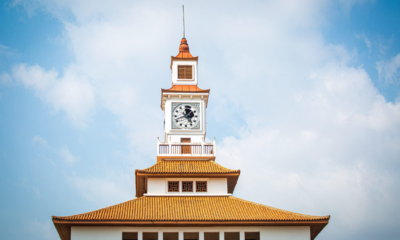
 Random Thoughts6 months ago
Random Thoughts6 months agoA Dutch Passport or a Ghanaian PhD?
-

 Foreign News9 years ago
Foreign News9 years agoEvery Animal Meat Is Not Beef! See All Their Names
-
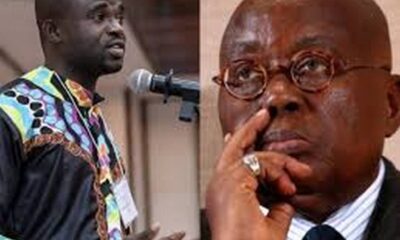
 Manasseh's Folder7 months ago
Manasseh's Folder7 months agoManasseh’s Praise and Criticism of Akufo-Addo’s Action on the SML Scandal
-

 Manasseh's Folder5 months ago
Manasseh's Folder5 months agoIs Napo Arrogant? And Does It Matter?
-
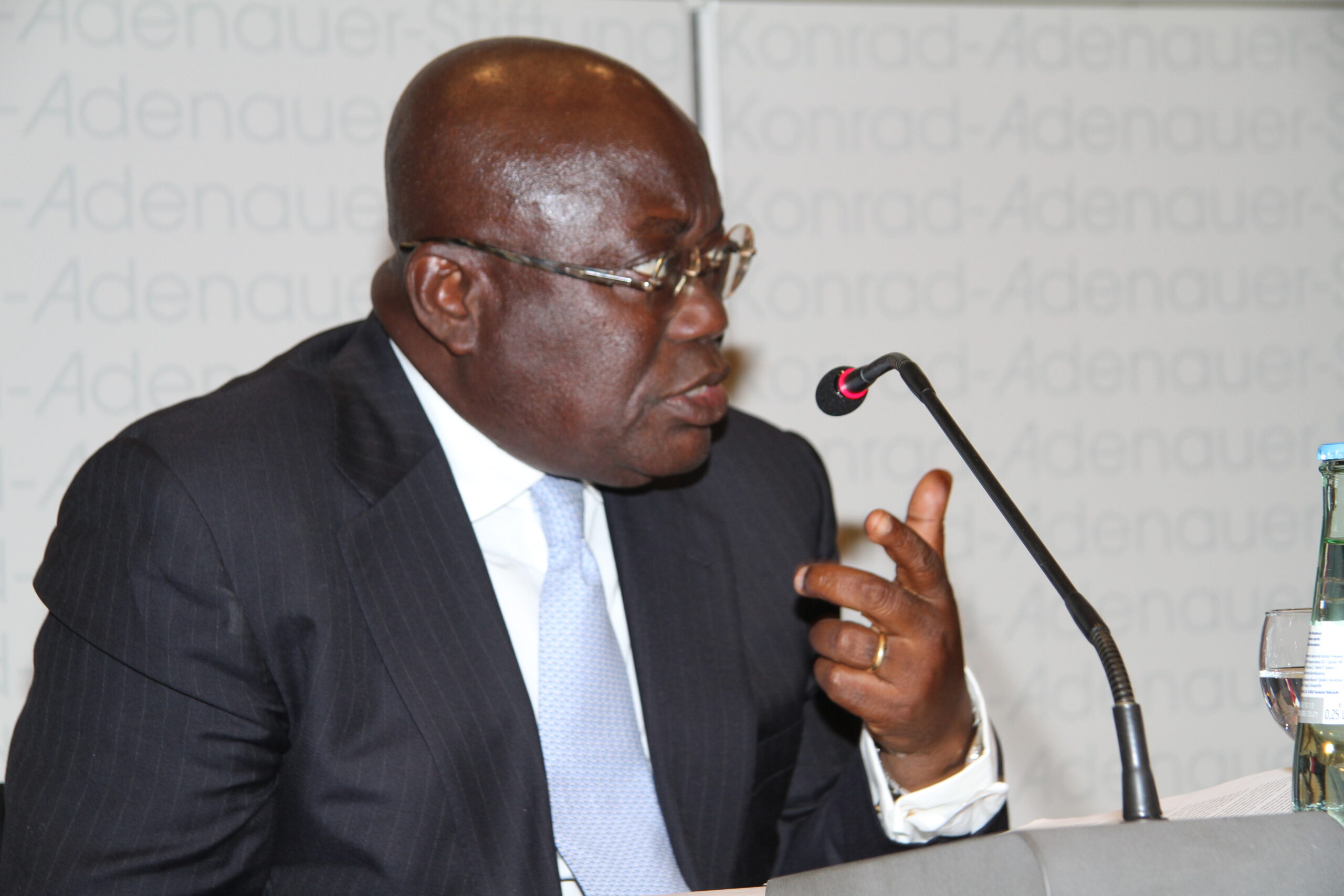
 Guest Writers8 years ago
Guest Writers8 years agoProf. Kwaku Asare writes: Nana Akufo-Addo has no law degree but…
-
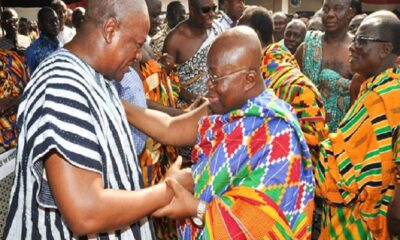
 Manasseh's Blog Posts4 months ago
Manasseh's Blog Posts4 months agoWho Started Free SHS?
-

 Manasseh's Folder8 years ago
Manasseh's Folder8 years agoEXCLUSIVE PHOTOS: Manasseh Azure Awuni marries “Serwaa”
-

 Guest Writers6 years ago
Guest Writers6 years agoIs “Engagement” a Legal Marriage?